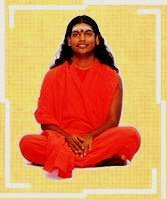Excerpts from the book: Nithyopanishad -- based on the discourses of Paramahamsa Nithyananda on The Master-Disciple Relationship at the Himalayan Yatra 2005
Someone asked: ‘Master, what is the difference between God and guru (master)?’
Without a moment’s hesitation and with characteristic authority came the response:
‘What do you know about God? All you know is a bunch of words and concepts. You have no clue of what you are talking about when you refer to God. To you he is just an idea, a visualization of what you believe to be the ultimate energy and universal consciousness, or whatever name you wish to give something you know nothing about.
A guru is real. He is the reality of the ultimate cosmic energy. He is here and now. He is in the present; He IS the present. He is the bridge between you and the concept of God. In that sense he is greater than God.
A small story:
A man went to court citing a suit for defamation of character as he was seriously insulted by a friend who called him a dinosaur a year earlier. The Judge asked why he waited so long. The man said, ‘I saw a dinosaur for the first time only last week and felt very insulted.’
When you begin to understand that you are living based on baseless concepts, your rationale simply drops; it disappears. Start living without concepts. Do not judge anybody by anything.
A disciple questioned Vivekananda, a great enlightened master, when the latter referred to his own master Ramakrishna as God. He asked him how he could call Ramakrishna God.
Vivekananda asked, ‘Tell me what you feel are the attributes of God?’
The disciple replied, ‘God is omnipresent, omniscient, omnipotent…’
Vivekananda said, ‘Stop! Explain to me what you mean by omnipresent.’
The disciple said, ‘It means he is everywhere, he is in the sky, he is the air, he is here, and he is there…’
Vivekananda then asked, ‘Do you see him then?’
Sheepishly the disciple shook his head and said, ‘No.’
Vivekananda said, ‘You foolish man, all that you know are words and concepts that have no real meaning. Enlightened masters are God standing in front of us.’
Someone asked me, ‘Are you God?’
If you do not know what or who God is, how can you ask me whether I am God? Now I tell you: God cannot be defined. He can only be experienced.
I said to him: I am more than God. I am not here to prove that I am God. I am here to prove you are God. If any one calls me God, I should sue them for defamation of character because the knowledge they have of God is not correct.’



 to view a larger map and get directions
to view a larger map and get directions








